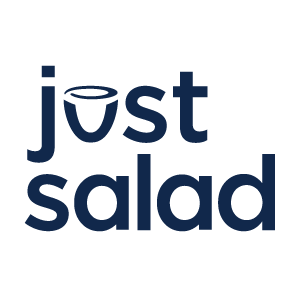
High quality LCAs in real-time
Get a deeper understanding of the carbon emissions of your products —all the way down to the farm level—and how to reduce them.
Whether you have 10 products or 10,000, you have the tools to design for lower emissions and credibly communicate your impact with consumers.

Discover how to make your products more sustainable
Powered by the deepest database in the food and beverage industry, our platform quickly calculates the carbon footprint of your products. But it doesn’t stop there. Understand what’s driving your emissions, from specific ingredients, farm practices, processing, packaging, transportation, and end-of-life.
35%
Identify the most powerful emissions reduction opportunities down to the ingredient and supplier level.
80%
While other LCA solutions and consultants take months, we give you results on the spot.
15+
Learn from some of the industry's most advanced Life Cycle Assessment experts.



rapidly assess your products
Quickly understand the GHG footprint of your products. Change ingredients, packaging, distribution, consumer use and end-of-life to see how variations impact your footprint. Understand where to focus your sustainability efforts across your entire product portfolio.
Seamless Data Sync
Upload your data and our machine learning algorithm matches it to our database of thousands of ingredients and materials.
Customized LCAs
Modify ingredients, packaging and processing and see how your footprint changes with just a few clicks.
Emissions Dashboard
Understand your emissions at a glance for your entire product portfolio.

get insights
Build any Life Cycle Assessment based on your specific supply chain characteristics. Easily account for climate-friendly farming practices.
Reduction Insights
Uncover specific emissions reductions opportunities across ingredients, manufacturing, packaging, and transport. Find actionable quick wins to decrease your carbon footprint.
Farm-Level Insight
Take credit for actions you've already taken, like reducing pesticide use or tillage. Model the impact of sourcing from regenerative suppliers.

communicate your impact with confidence
Have experts verify your results and ensure they are aligned to the highest standards. Feel confident communicating your sustainability efforts through carbon labeling and impact reporting, and minimize the risk of greenwashing.

explore our industry-leading software











FAQ
How are your LCAs different from other LCAs?
Planet FWD’s LCA database is developed with rigorous scientific methodology by a team of expert scientists and engineers from diverse scientific disciplines, such as environmental engineering, agricultural/plant science, process engineering, environmental science, food science and chemical engineering. With our focus on the food and beverage industry, we offer the most in-depth ingredient database. It also contains rigorous models for packaging materials, chemicals, cleaning agents, and more. While many other sources may contain limited variety for each ingredient, our database includes variations based on region, farming practices, processing methods, etc. For example, rather than only having one emissions factor for sunflower oil, Planet FWD offers many variations for types of sunflower seeds (e.g. high oleic) and methods of extraction (e.g. expeller-pressed, solvent-based).
What is a Product Life Cycle Assessment?
LCA (life cycle assessments) are product-level results that demonstrate emissions across the life cycle of an individual product, which includes impacts related to growing ingredients, packaging, processing, distribution, and end of life. A product’s LCA measures the total footprint of that product.
How do you help customers perform Product Life Cycle Assessments?
We do full cradle-to-gate and cradle-to-grave LCAs for our customers that are aligned with the Greenhouse Gas Protocol (GHG Protocol) and International Organization for Standardization (ISO) benchmarks. We provide insights into greenhouse gas emissions, water use, agricultural land use, and energy footprints along the entire life cycle of a product, from raw material production or acquisition, through processing, transport, distribution, consumer use, and end of life. We rely on our robust Life Cycle Inventory database of thousands of materials and ingredients to create highly customized LCAs for our customers, whether they have 10 or 10,000 products.
How granular are the decarbonization recommendations that you are making?
For products, we offer tailored recommendations based on each customer's product and what actions are feasible for them. We may surface a general recommendation (e.g., move to a larger format to reduce the impact of packaging). If a customer agrees, we then provide more granular insights such as switching to a 32 oz Carton that would result in X% reduction or using a 1 L film yielding a Y% reduction. For additional guidance on novel materials or processes you are considering, our team is available to develop custom assessments as an add-on service.
What are some examples of actions customers have taken in the past as a result of using your product?
Ritual worked with Planet FWD to conduct product LCAs across their full portfolio of supplements. They used their LCAs to carbon label each of their products to provide their customers with full transparency of their product carbon emissions. Based on their LCA results, they were able to implement an ingredient swap. Specifically, the tool demonstrated the lower emissions impact of regenerative pea protein versus traditional whey and identified products where they could swap in pea protein. Ritual became Carbon Free certified and earned an Amazon Climate Friendly Badge to help expand their distribution.
Just Salad used Planet FWD’s cradle-to-grave product LCAs for carbon labels on their menu items and for product innovation. For supplier selection and recipe development, they looked for regenerative growers, as well as vegan alternatives, for their high emissions items, and ultimately switched to several of these. This resulted in the footprints of various meals to drop from 4-20% depending on the ingredients.
See the See the Success Stories section of our website for in-depth case studies.
What can I use my product LCA for?
So many things! We encourage brands to use the Product LCA for internal and external purposes.
- Product Innovation: Use the LCA in product R&D to create more sustainable offerings that incorporate more emissions-informed ingredient, packaging, and processing choices.
- Carbon Labeling: Be at the forefront of the next generation of sustainable consumer brands with labeling that shares the extent of your carbon reduction efforts.
- Impact Reporting: Bring high-level visibility to your company’s reduction commitments and showcase met targets for investors and customers.
What is the difference between a Product Life Cycle Assessment and a Corporate Inventory?
A product LCA evaluates the greenhouse gas emissions of a product, including raw materials, processing, production, distribution and storage, use, and end-of-life. Product LCAs typically exclude emissions from the equipment used to produce the goods as well as any company overhead.
A Corporate Inventory evaluates the overall emissions associated with a business, not just those directly related to the production of the product, It includes Scope 1 & 2 emissions directly related a company’s operations as well as Scope 3 emissions related to the company’s purchases, distribution and product use, and other activities like business travel and employee commuting.
A Corporate Inventory will typically include all emissions associated with its products AND other emissions related to running the business. A Corporate Inventory is best suited for evaluating emissions reductions across a company. A Product LCA supports designing for lower emissions, carbon labeling for transparency, and other potential marketing claims.






